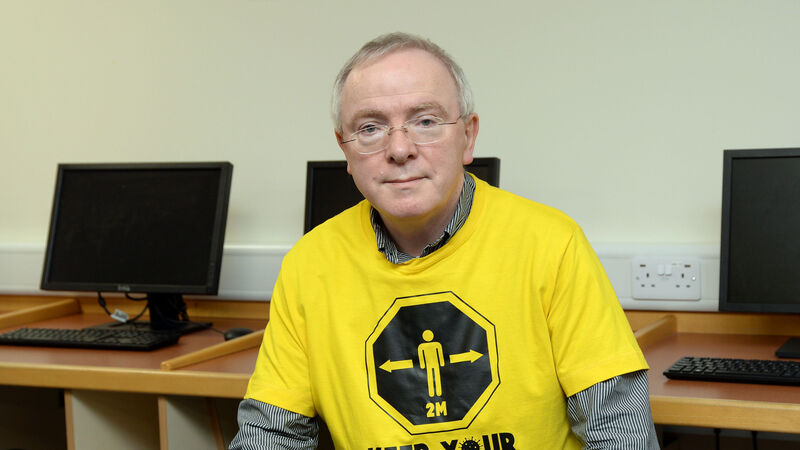Leading scientist warns Ireland must change policy to avoid 'major surge' in Covid-19 infections

Ireland is facing an alarming winter surge of Covid-19 cases unless there is a fundamental change in policy, scientists have warned.
“We are sleepwalking towards a major surge in infections. We need a strategy to eliminate Covid-19,” said Professor Ivan Perry, dean of public health at University College Cork.
Prof. Perry is a member of the Zero Covid Island Group that wants tougher measures to get on top of the virus.
"The Government needs to adopt and lead on a policy of elimination to get to zero Covid-19," he said.
"We estimate that we can bring Covid to zero cases per day in between four and six weeks and then begin a cautious return to normal life."
There would be strict control over unsafe high-density housing, the meat industry, and other major sources of outbreaks. The ban on large events would continue.
“A zero Covid Ireland allows a safe return to work, to school, and will support the recovery of our society and economy," said Prof Perry.
Ireland’s response to Covid-19 — the emergency lockdown — was effective in avoiding a surge of infection swamping the health service and reducing the number of daily cases to single digits.
But the policy then became suppression of the virus to a tolerable level, of living with the virus, and awaiting a vaccine.
“This meant that we were always seven to 10 days behind the virus in our response," Prof. Perry said.
"The rising number of cases over the last few weeks shows the limits of this approach. We need to get ahead of this vaccine."
The virus was sequenced in January this year and, currently, six clinical trials are underway to see if they are safe and they work.
“This is extraordinary progress. All going well, we may have access to limited supplies of a safe, effective vaccine by April 2021. However, we may not," Prof. Perry warned.
Prof. Perry said the group that met the Oireachtas special committee on Covid-19 this week has been in existence for several weeks.
“Ideally, we are talking about an all-Ireland zero Covid strategy and there is a good deal of support for this within the Northern Ireland Executive.”
Northern Ireland public health expert, Prof. Gabriel Scally, is one of the 11 leading Irish scientists who are members of the group.
The scientists’ zero Covid plan includes the creation of green zones where there was no community transmission for several weeks.
Prof Perry. explained people from outside green zones would be restricted from non-essential travel into, but not through, green zones.
“The idea is that you would gradually expand those green zones until the entire country was a green zone.”
Meanwhile, there has been a surge in the number of people attending Mercy University Hospital’s emergency department.
According to the TrolleyGAR compiled by the HSE’s special delivery unit, the hospital had 11 patients on trolleys in the emergency department on yesterday, with four waiting over nine hours and one waiting more than 24 hours.
The hospital has stressed that the clinical needs of all patients in the emergency department are being met but regrets that patients will experience delays.
Due to the surge in activity at the emergency department, the hospital is appealing to members of the public needing less urgent treatment to use other care services where possible.
The hospital has implemented its escalation policy to deal with the high number of people attending the emergency department that remains open 24/7.